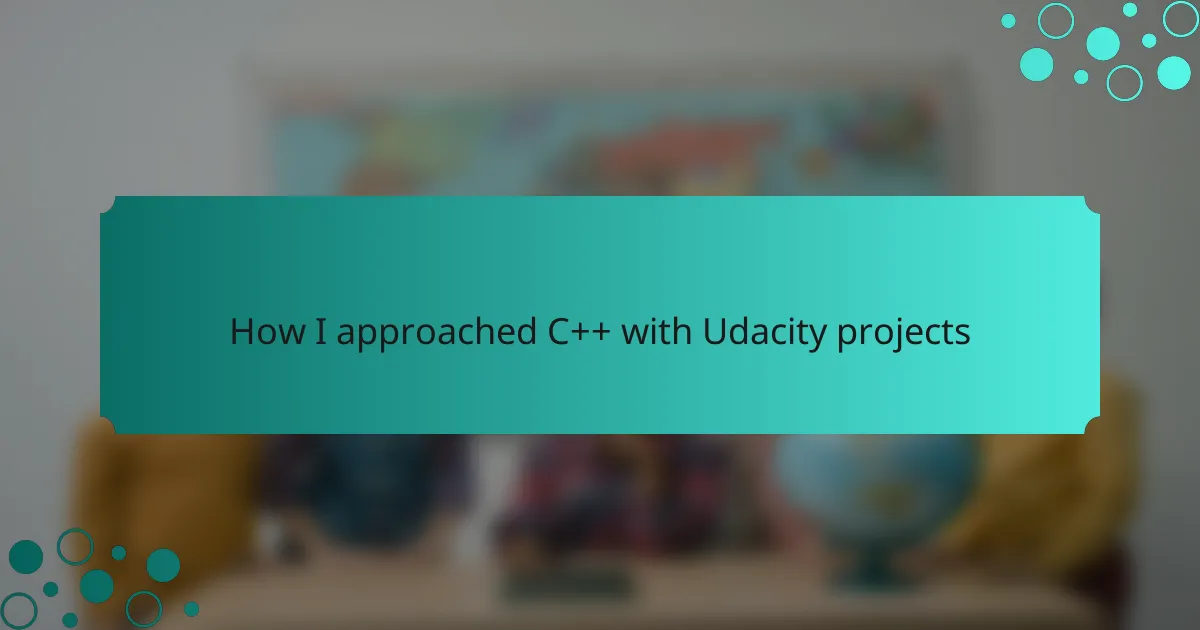Key takeaways
- C++ tutorials are valuable for understanding the language’s fundamentals and its application in real-world scenarios through project-based learning.
- Hands-on projects, such as those offered by Udacity, enhance problem-solving skills and deepen understanding of programming concepts.
- Choosing projects that align with personal interests and skill levels boosts engagement and motivation in learning C++.
- Challenges such as debugging and time management cultivate resilience and improve problem-solving abilities in programming.
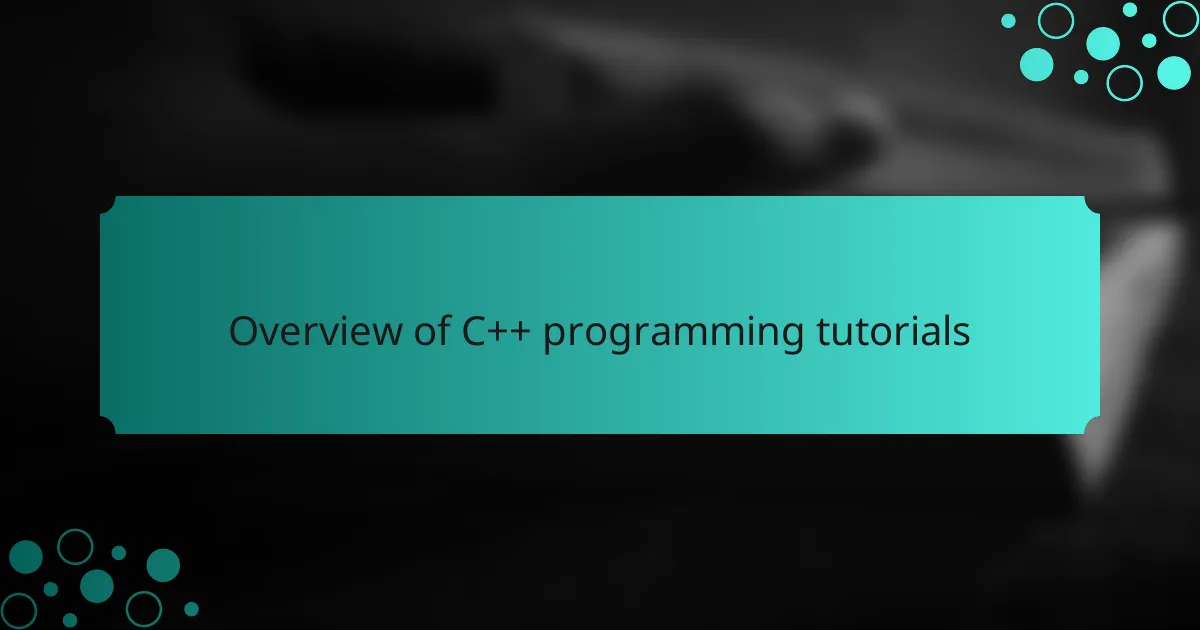
Overview of C++ programming tutorials
C++ programming tutorials offer a rich landscape for both newcomers and seasoned developers. I remember when I first plunged into the world of C++; the tutorials provided a structured way to grasp the fundamentals. Have you ever felt overwhelmed by a programming language? That was me at the start, but the step-by-step approach of these tutorials really helped simplify complex concepts.
In my experience, C++ is not just about syntax but understanding how to leverage its capabilities. For instance, learning about object-oriented programming through tutorials allowed me to see how powerful C++ can be for building robust applications. Have you tried implementing classes and objects after watching a tutorial? The sense of accomplishment is truly rewarding.
Moreover, the diversity in available C++ tutorials—from video series to interactive coding exercises—means there’s something for everyone. Personally, I found that hands-on practice solidified my knowledge better than theory alone. What methods have you found effective for learning C++? Engaging with different formats can make a big difference in how we absorb the material.
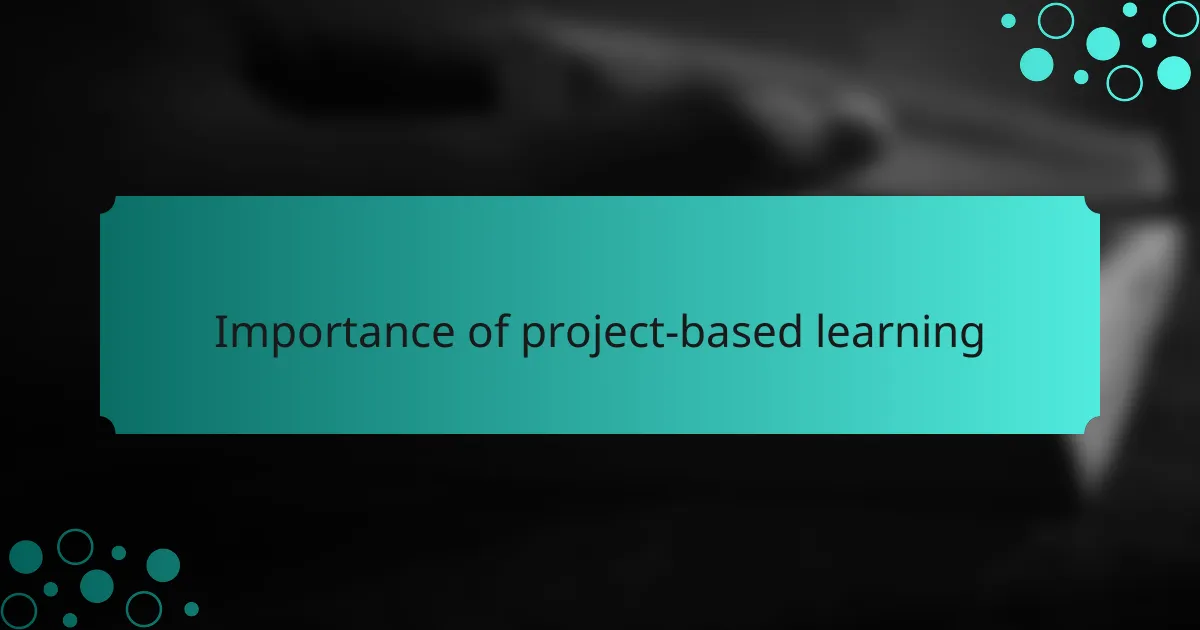
Importance of project-based learning
Project-based learning truly transforms the way we understand programming concepts. When I worked on my first Udacity project, I felt the thrill of bringing my code to life. Have you ever created something from scratch? There’s something incredibly empowering about turning theory into a working application.
I often found that diving into projects pushed me to solve real-world problems rather than just theoretical ones. It’s one thing to read about algorithms; it’s another to implement them in an actual project. I remember struggling with debugging, but those moments taught me resilience and critical thinking. Isn’t it amazing how hands-on experience can deepen our understanding?
Moreover, the satisfaction that comes from completing a project is unmatched. Each project became a milestone in my learning journey. Have you experienced that sense of pride when you finally see your code functioning as intended? It’s moments like these that make project-based learning not just beneficial, but absolutely essential for any aspiring programmer.
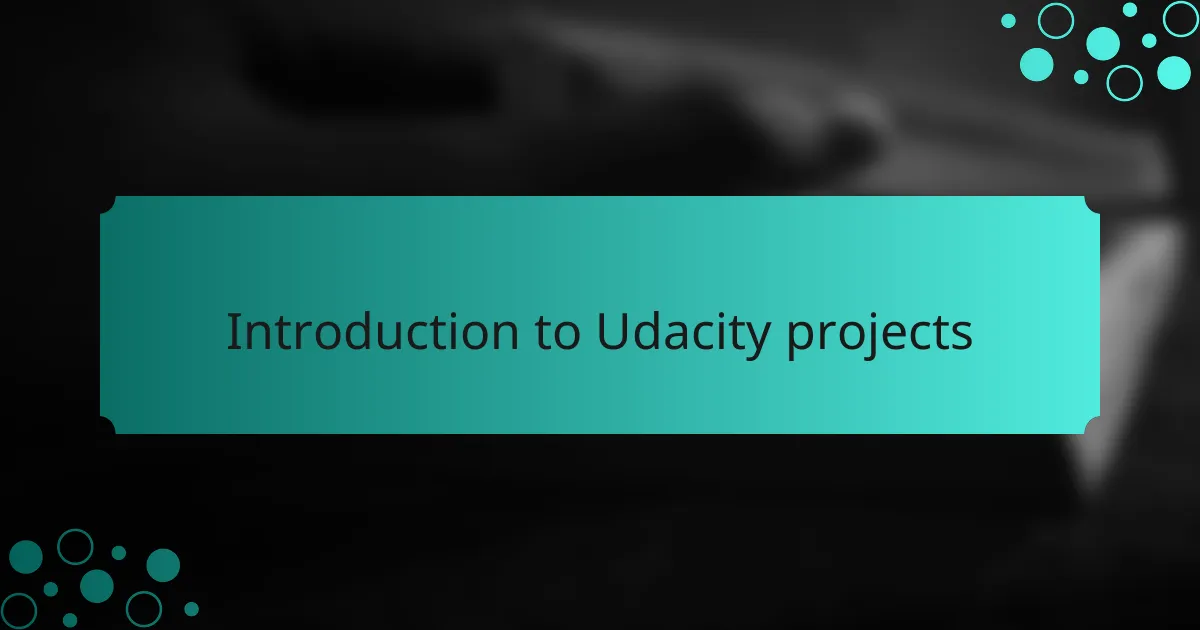
Introduction to Udacity projects
Udacity projects offer a hands-on approach to learning that I found to be invaluable during my journey with C. From the very first project, I was tasked with applying concepts in real-world scenarios, which made the learning process much more engaging. Have you ever felt like theory just isn’t enough? I certainly did, and these projects bridged that gap perfectly.
One of my early projects involved creating a simple application, and it was exhilarating to see my code come to life on the screen. I vividly remember the rush of excitement when the program ran without errors; it felt like a victory! This experience taught me that making mistakes is part of the journey and can lead to surprising insights. Isn’t it interesting how failures can sometimes steer us toward better solutions?
As I progressed through various Udacity projects, I began to understand the language deeply, not just superficially. Each project presented unique challenges that encouraged me to think critically and find creative solutions. I still recall how I tackled a particularly tricky bug; the thrill of finally resolving it was one of the most rewarding experiences of my learning process. Have you had a similar experience where overcoming a challenge really boosted your confidence? It’s amazing how these projects can turn abstract concepts into tangible achievements.
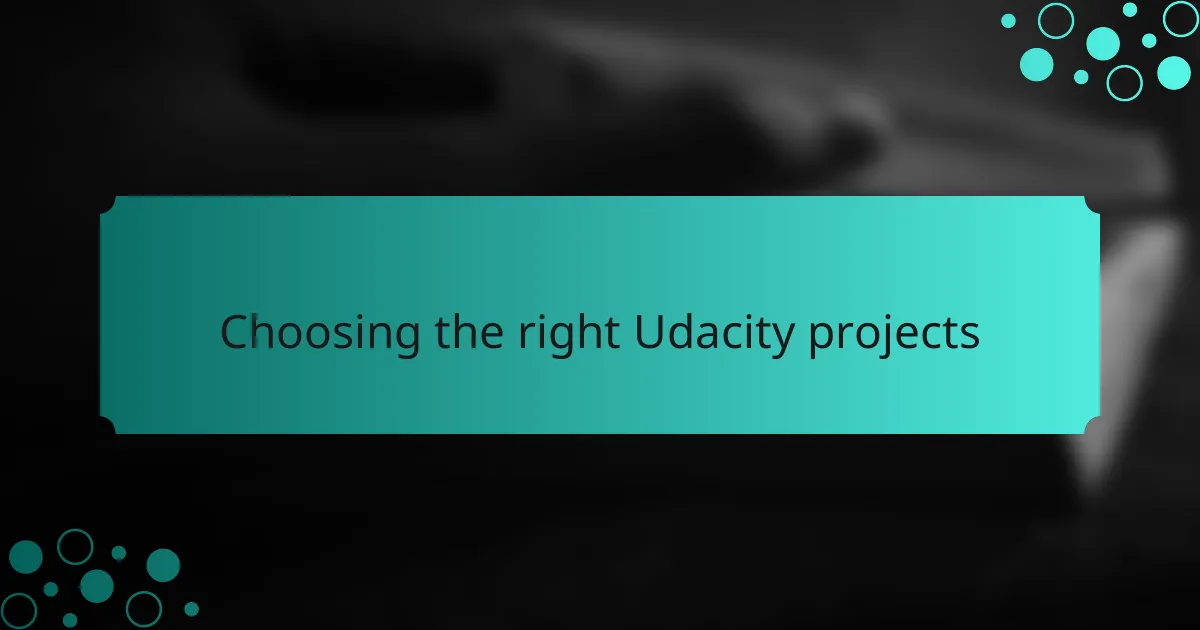
Choosing the right Udacity projects
Choosing the right projects from Udacity can feel overwhelming at first. After going through several, I found that selecting projects aligned with my interests and skill level made a massive difference. For example, I focused on projects that allowed me to practice problem-solving in C, which not only enhanced my coding skills but also kept me engaged and motivated.
Reflecting on my journey, I remember how the excitement of tackling real-world problems fueled my passion for programming. Udacity offers a wonderful variety of projects, which cater to different levels of expertise and various areas of C programming. Taking the time to evaluate these options before jumping into a specific project helped me build a solid foundation in coding and maintain my enthusiasm.
| Project | Level |
|---|---|
| Memory Management | Beginner |
| Data Structures | Intermediate |
| Multi-threading | Advanced |
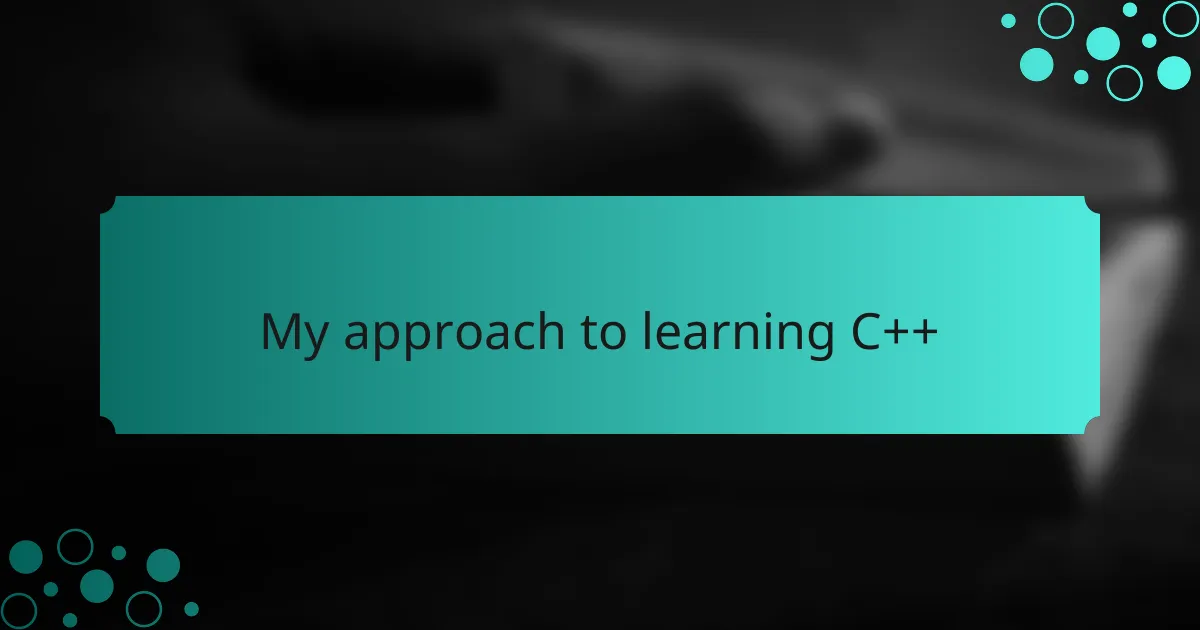
My approach to learning C++
When I approached learning C++, I decided to dive into practical projects through Udacity. Engaging with hands-on exercises kept me motivated and helped reinforce concepts. I still remember the thrill of solving my first programming challenge—it felt like unlocking a new skill set!
Breaking down complex problems into manageable tasks was another strategy I found effective. I often reflected on my mistakes, viewing them not as setbacks but as stepping stones. This mindset shift made a significant difference in my learning journey.
Here’s a comparison table of my project-based learning approach and traditional learning methods:
| Aspect | Project-Based Learning | Traditional Learning |
|---|---|---|
| Engagement | High – hands-on projects | Moderate – lectures and readings |
| Practical Application | Immediate – apply concepts right away | Delayed – concepts learned before application |
| Problem-Solving | Encouraged – tackle real-world challenges | Limited – focus on theory |
| Motivation | Boosted – seeing progress in tangible projects | Variable – can feel abstract |
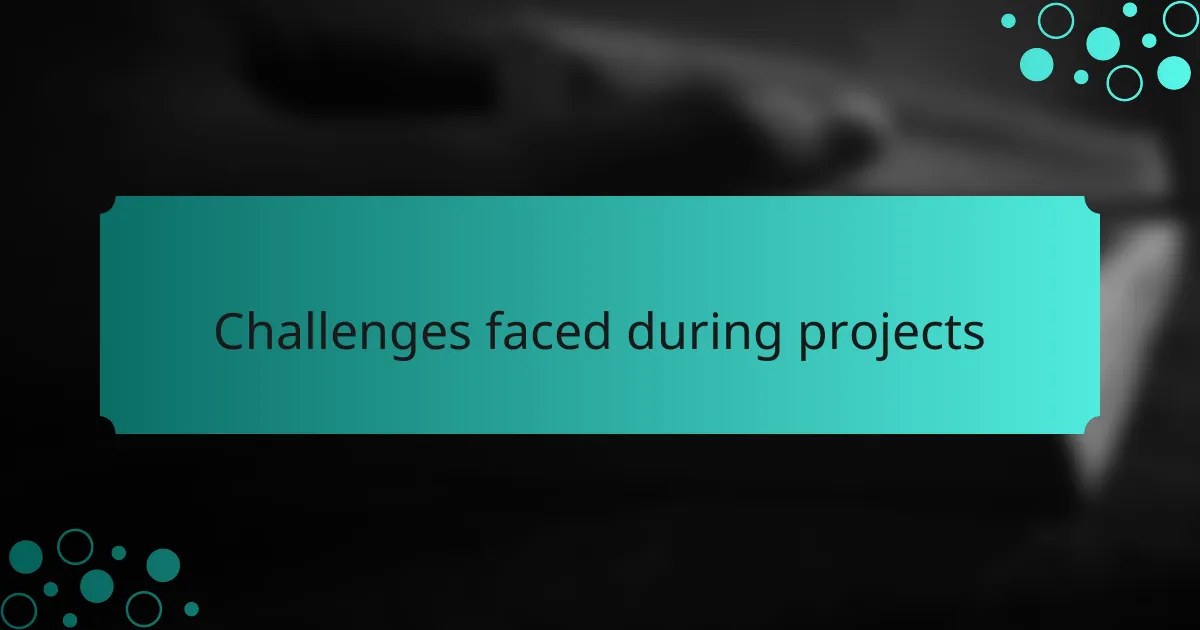
Challenges faced during projects
Working through Udacity projects in C was a rewarding yet challenging experience. One of the biggest hurdles I encountered was debugging complex code. There were moments when I felt frustrated, staring at the screen for hours, not understanding why the program wasn’t behaving as expected. It reminded me how important patience is in programming and the value of taking a step back to reevaluate the problem.
Among the various challenges, here are some that stood out during my projects:
- Understanding pointers and memory management: This was an area that truly tested my skills. It felt like navigating a maze at times.
- Error messages: Deciphering cryptic compiler errors often left me scratching my head, but it gradually improved my problem-solving abilities.
- Time management: Balancing project deadlines with personal commitments was tricky, especially when I wanted to dig deeper into concepts.
- Keeping up with project requirements: As projects often had specific stipulations, ensuring I met all criteria was both exciting and stressful.
- Collaborating with peers: While it sometimes felt intimidating to share my work, it also led to some of the best learning moments and support.
